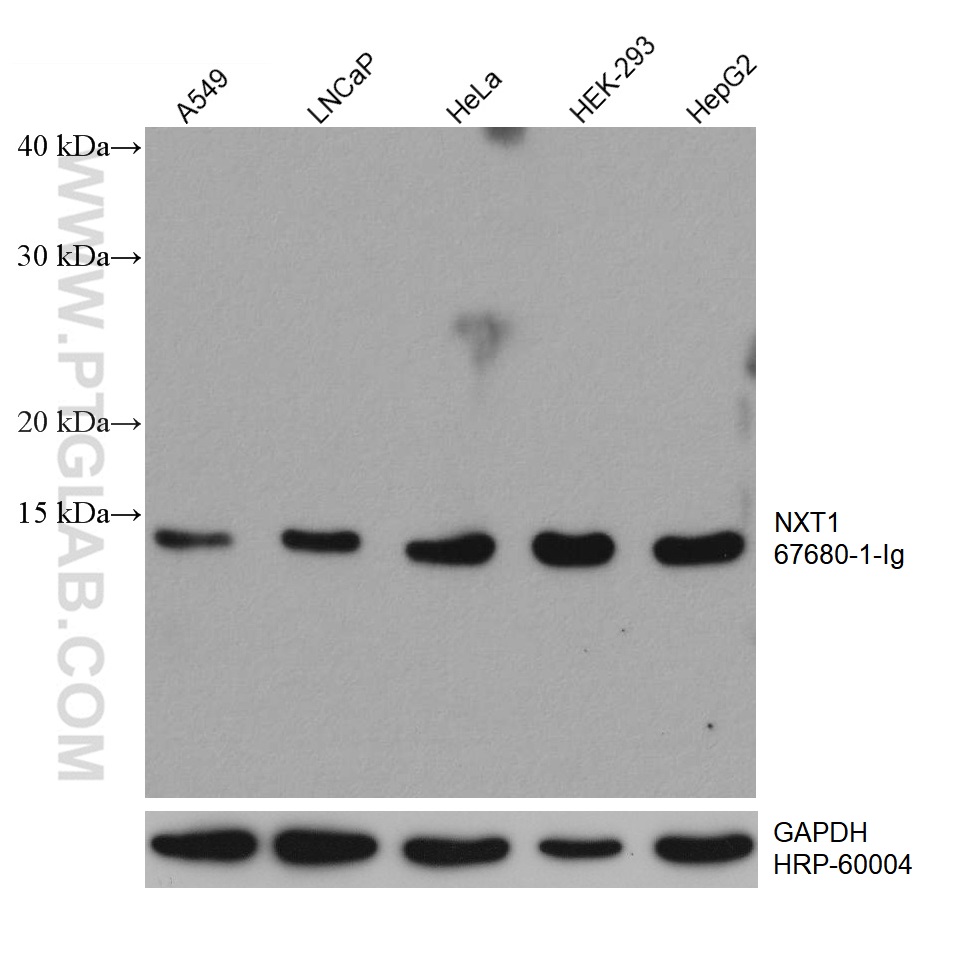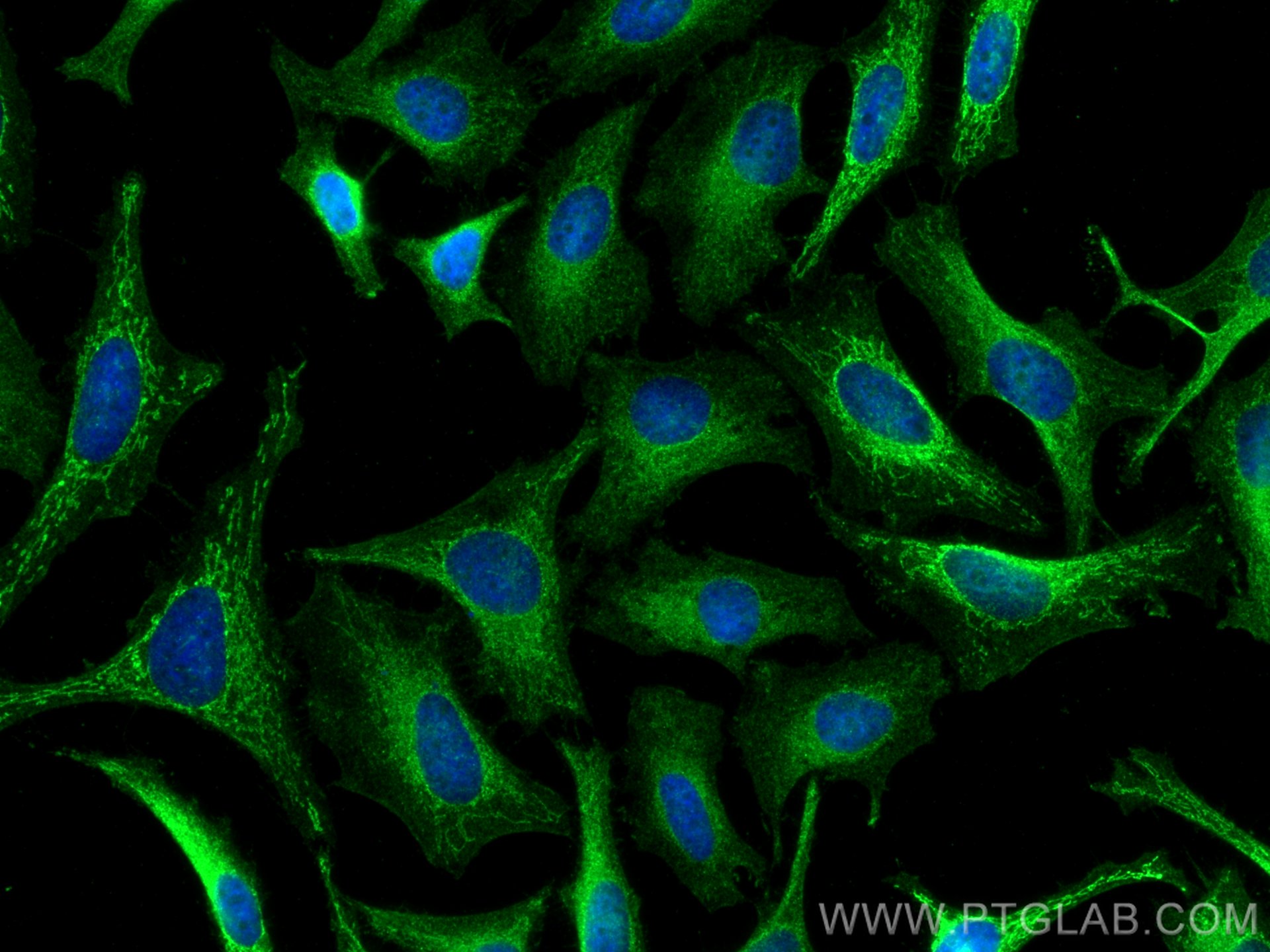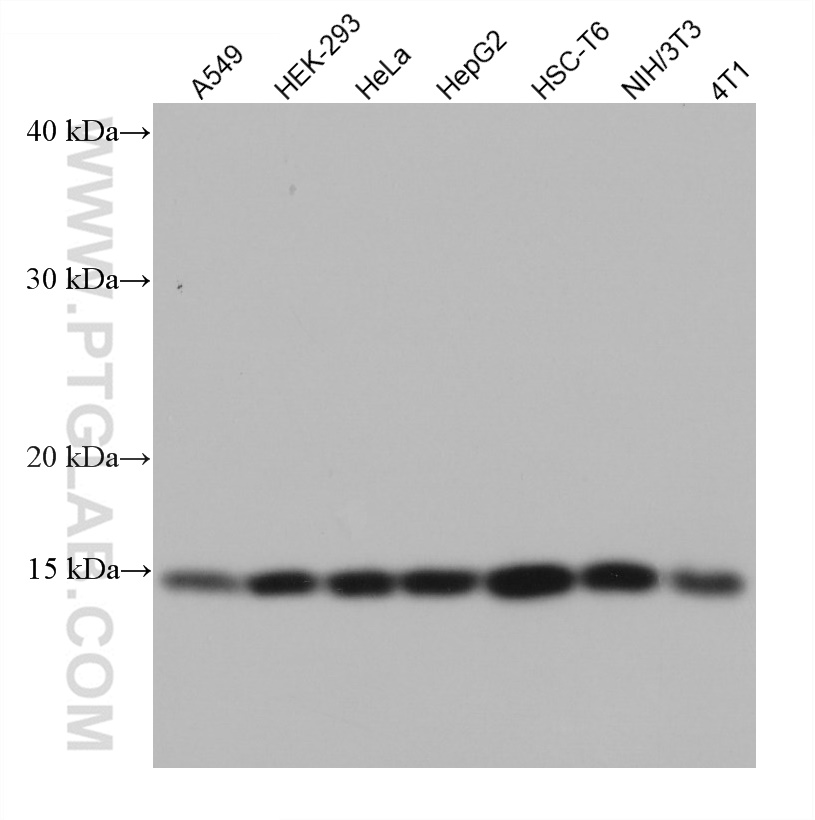验证数据展示
经过测试的应用
| Positive WB detected in | A549 cells, HEK-293 cells, HeLa cells, HepG2 cells, HSC-T6 cells, NIH/3T3 cells, 4T1 cells |
| Positive IF/ICC detected in | HeLa cells |
推荐稀释比
| 应用 | 推荐稀释比 |
|---|---|
| Western Blot (WB) | WB : 1:5000-1:50000 |
| Immunofluorescence (IF)/ICC | IF/ICC : 1:200-1:800 |
| It is recommended that this reagent should be titrated in each testing system to obtain optimal results. | |
| Sample-dependent, Check data in validation data gallery. | |
发表文章中的应用
| WB | See 1 publications below |
产品信息
67680-1-Ig targets NXT1 in WB, IF/ICC, ELISA applications and shows reactivity with Human, mouse, rat samples.
| 经测试应用 | WB, IF/ICC, ELISA Application Description |
| 文献引用应用 | WB |
| 经测试反应性 | Human, mouse, rat |
| 文献引用反应性 | human |
| 免疫原 | NXT1 fusion protein Ag30039 种属同源性预测 |
| 宿主/亚型 | Mouse / IgG2a |
| 抗体类别 | Monoclonal |
| 产品类型 | Antibody |
| 全称 | NTF2-like export factor 1 |
| 别名 | MTR2, NTF2 like export factor 1, NTF2 related export protein 1, NXT1, P15, Protein p15 |
| 计算分子量 | 15 kDa |
| 观测分子量 | 15 kDa |
| GenBank蛋白编号 | BC000759 |
| 基因名称 | NXT1 |
| Gene ID (NCBI) | 29107 |
| RRID | AB_2882873 |
| 偶联类型 | Unconjugated |
| 形式 | Liquid |
| 纯化方式 | Protein A purification |
| UNIPROT ID | Q9UKK6 |
| 储存缓冲液 | PBS with 0.02% sodium azide and 50% glycerol , pH 7.3 |
| 储存条件 | Store at -20°C. Stable for one year after shipment. Aliquoting is unnecessary for -20oC storage. |
背景介绍
NXT1 is located in the nuclear envelope and is homologous to nuclear transport factor 2. NXT1 functions as a nuclear export factor in both RAN (Ras-related nuclear protein)- and CRM1 (required for chromosome region maintenance)-dependent pathways. It is found to stimulate the export of U1 snRNA in RAN- and CRM1-dependent pathways and the export of tRNA and mRNA in a CRM1-independent pathway. NXT1 also heterodimerizes with Tap protein and regulates the ability of Tap protein to mediate nuclear mRNA export.
实验方案
| Product Specific Protocols | |
|---|---|
| WB protocol for NXT1 antibody 67680-1-Ig | Download protocol |
| IF protocol for NXT1 antibody 67680-1-Ig | Download protocol |
| Standard Protocols | |
|---|---|
| Click here to view our Standard Protocols |


